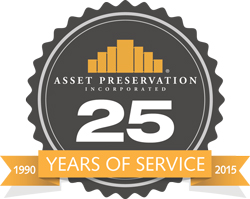Combine Reverse & Delayed Exchange for 360 Days
|
Tax-deferred exchanges have been part of the U.S. Tax Code since 1921. Since that time, the government has approved certain methods to structure exchange transactions that are so called “safe harbors.” For example, in 1991 the U.S. Treasury issued final regulations that provided important guidance on the structure of delayed exchanges, including guidance regarding the 45-day identification period and 180-day exchange period set forth in Section 1031 and other procedural requirements. On September 15, 2000, the Internal Revenue Service released Revenue Procedure 2000-37 that provided guidelines for structuring reverse exchanges (a transaction in which replacement property is acquired by an accommodating party before the sale of the relinquished property, and held as replacement property to complete the exchange). |
|
|
A replacement property may be acquired and held (sometimes called “parked”) by the accommodating party for up to 180 calendar days. The IRS provided guidance (See ILM 200836024) approving the combination of a reverse parking arrangement exchange and a forward delayed exchange resulting in two sequential 180-day exchange periods associated with one exchange transaction. Read more… |
|
1031 Basics: Identification Rules
|
A taxpayer has until midnight of the 45th calendar day following the sale of the relinquished property to properly identify the replacement property. To learn about the three different ways to identify replacement property, click on Identification Rules. |
The Real Estate Side of Oil and Gas Royalties
Whenever we hear the word “real estate” what comes to mind is the traditional categories of property we see and live in on a daily basis. There is farmland, ranchland, raw land, brick and mortar, commercial properties, multi-family structures, and our homestead, all of which affect our daily lives in a positive manner. These types of real property provide a variety of financial gain by generating cash flow to the owner of these assets. Outside of our homestead, most real estate properties have an investment appeal that attracts all of us to one or more categories of real property assets. There is an additional benefit to owning one or more categories of property assets: the appreciation in value most real estate provides.
There is another category of real estate and real property not very well known by many of us and not readily available to everyone. However, this category of real estate provides the same benefits as the traditional real estate we all understand. Read More…
Alfred C. Teran, Patriot Energy, is associated with Patriot Energy and is not an employee or agent of Asset Preservation, Inc. Any views or opinions presented in Mr. Teran’s article are solely those of the author and do not necessarily represent those of Asset Preservation, Inc. A proper evaluation of the benefits and risks associated with a particular 1031 exchange transaction often requires advice from a competent tax and/or legal advisor familiar with your specific transaction, objectives, and the relevant facts. Asset Preservation, Inc., strongly urges you to involve your tax and/or legal advisor (or to seek such advice) in any real estate or business-related transaction.
How Healthy Is Your City’s Housing Market?
|
Boston has happy home buyers, while Las Vegas lacks reliable residents, according to a new study. WalletHub, a consumer finance website, looked at how the housing recovery affected consumers across the country. Having the right type of financing could set home buyers up for success — and the risky kind could set families up for failure down the road, said WalletHub spokeswoman Jill Gonzalez. So, WalletHub ranked 25 metropolitan areas on homeowners’ “financial freedom,” using data from the Census Bureau’s American Housing Survey. Read More… |
Short Supply of Available Units Is Pushing Up Rents
Labor Department data show rents have already climbed 3.5 percent in the 12 months through June, matching the biggest jump since 2008. That far outstrips the increase in consumer prices, excluding food and fuel, which was 1.8 percent in the same period. Read More…
IRS Provides Tax Relief for Disaster Situations
|
Tax Relief for Victims of Severe Storms, Tornadoes, Straight-line Winds and Flooding in Texas which occurred beginning May 4, 2015, may qualify for tax relief from the Internal Revenue Service. Certain taxpayers may qualify for postponement of the exchange deadlines in Section 1031 if the relinquished or replacement property is located in a Presidentially-declared disaster area, or if the principal place of business of a party to the transaction is located in a covered disaster area. Taxpayers can also qualify by satisfying other criteria. For updates or more information on all disaster areas, Visit the IRS: Tax Relief in Disaster Situations. |
Attend a Complimentary 1031 Exchange Webinar for CPE Credit
Title: 1031 TAX-DEFERRED EXCHANGE ISSUES IN 2015
Presenter: Scott Saunders, Asset Preservation, Inc.
Course Description:
This one-hour webinar covers critical IRS time deadlines in deferred exchanges; like-kind requirements (including creative property variations like easements and personal property exchanges); partnership/LLC scenarios (and restructuring in advance of a 1031 exchange), reverse and improvement exchanges; related party transactions; how to avoid common pitfalls, and other 1031 exchange-related issues. This webinar will provide a summary of current developments regarding possible tax reform and the implications on 1031 exchanges. It also addresses applicable Revenue Rulings, PLRs, and other recent IRS guidance on current issues related to exchanges.
Course Details:
Date: Wednesday, September 9, 2015
Time: 8:00 a.m. – 9:00 a.m. (PST)
Cost: Free
CPE Credits: 1.0 hour (Accountants & CPAs)
View Details and Registration Info at cpaacademy.org
1031 Exchanges Under Attack! Help Support the Real Estate Industry Now
Asset Preservation’s 25th Anniversary!
"It is with great pleasure (and a bit of shock) that I announce API’s 25th anniversary! In 1990, three of us started API as a subsidiary of Placer Title Company in Northern California. This was when there was very little 1031 activity compared to the activity we see now. In our desire to grow nationally, and to provide greater security for client exchange funds, we successfully sold the company to Stewart Title Company in 1993.
This is where the memory gets blurry. I spent approximately 12 years traveling the country. I attended countless Stewart conferences, meeting the incredible Stewart family of associates, from coast to coast. Many of those friendships continue to this day. I gave more presentations, classes and lectures on 1031 exchanges than I can remember, while meeting outstanding people with whom I still have the pleasure of working. Expanding API nationally also allowed me to see much of our beautiful country, an opportunity I most likely would not have had otherwise. It was the work of the young, and I highly doubt that I could repeat that performance today…"
To read the message in its entirety, Read Message from API’s Co-founder and President.
|
Happy 25th Anniversary API!
|





 1031 Materials
1031 Materials Past
Past